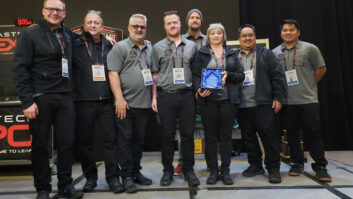Maytag’s planned $2.1 billion buyout by a private investor group has garnered mixed reactions from industry players and pundits.
While most applaud the new lease on life for the struggling manufacturer, others question the long-term commitment of the industry outsiders who would own it, and whether Maytag will remain a going concern.
The surprise acquisition, which would retain senior management and take the company private, is expected to close later this year pending shareholder and regulatory approval — or a serious counteroffer.
Wall Street wags believe that removing Maytag from public scrutiny will give the company time to repair itself — likely a years-long process — without the distraction of quarterly reports.
Analysts also describe the $14-a-share takeover price as a bargain — especially after the stock’s 25 percent appreciation in the days following the announcement. The share gains have helped fuel speculation that Maytag may be ripe for a counteroffer, perhaps from another majap maker, although others argue that the present proposal is evidence that the company has already been shopped around within the white-goods community. Maytag is also subject to a $40 million termination fee should the deal fall through, according to a filing with the Securities and Exchange Commission.
Counteroffers notwithstanding, Maytag’s customers were glad to see the company get a second chance. “We definitely need Maytag to survive and prosper, and it seems like this deal will allow them to do what needs to be done,” said Mel Hunger, executive director of the NECO Alliance, a Nationwide Marketing Group division. “They have strong brands with great equity, and it would be a loss for the industry if the company disappeared.”
But Randy Johnson, major appliances merchandising VP for BrandsMart U.S.A., suggests a different scenario for the company and its storied brand portfolio. “There’s an opportunity to make money by splitting Maytag up,” he speculated. “Private investors are not in love with the appliance business. They don’t like the margins. But they see value in the great brand names, and Samsung would love Hoover, Whirlpool would love Amana’s bottom-mount [refrigeration] business, and Electrolux could use Jenn-Air production to support its premium Icon line.”
Con Maloney, CEO of Cowboy Maloney’s Electric City, believes the new owners will attempt to create value in the business and then find their payday in the public markets. But many questions remain.
“How are they going to handle things?” Maloney asked. “How will they finance the product to the retail market? Will the public financing companies do business with a private entity? And how will they come to market? Will they become a price leader? Will they continue to promote reliability through Ol’ Lonely? Will they source product and slap the Maytag name on it? I’m sure they had this all figured out before they committed $2 billion, but they’ll still need very, very deep pockets to make it work.”
“It’s expensive to be in the appliance business,” agreed Johnson. “You’ve got to make deliveries and provide service.”
Both dealers say Maytag’s troubles began when it strayed from the corporate culture that made it a market leader. “The old Maytag stood for quality of product and the integrity of the company,” said Maloney, a former employee. “It’s a different company now, much more mass-market oriented.”
Johnson pointed to Maytag’s one-time $23 million annual ad budget, which, built around the iconic Maytag repairman character, “skipped over retail to drive consumer demand directly.”
“But then they started jumping and changing,” he said. “They lost the dependability factor and they lost the cost factor. They tried to control pricing with a unilateral pricing structure on the Atlantis line, then they went with the nationals, and then they bought Amana but didn’t know what to do with it.”
Johnson said he wasn’t surprised that Maytag was sold, but was “shocked” that it was sold to interests outside the industry. But a sale to outside investors would only mirror the recent slew of private acquisitions on the retail side, including Ultimate Electronics, H.H. Gregg and, on a grander scale, Sears and Kmart.













